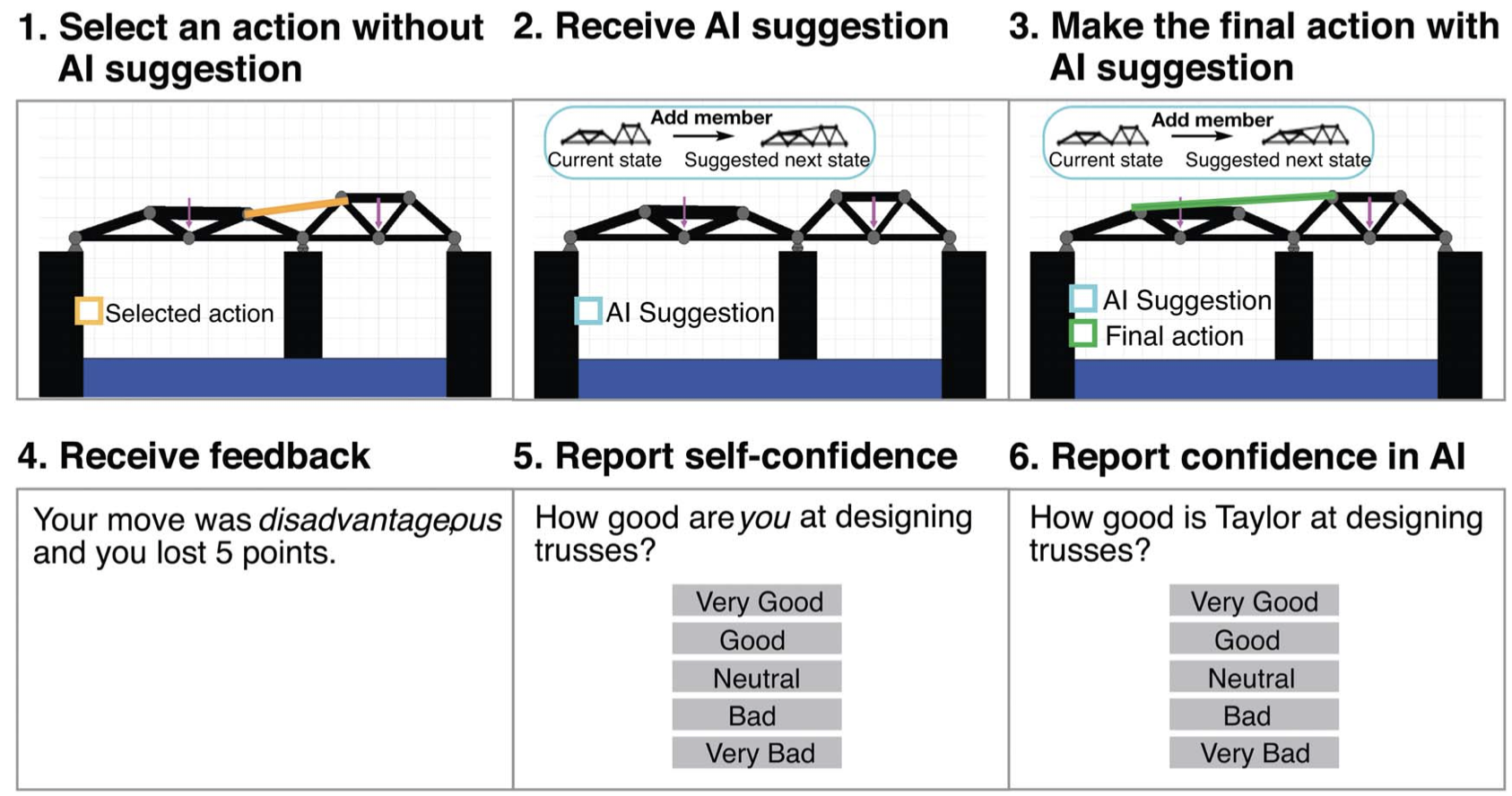Abstract
Decision-making assistance by artificial intelligence (AI) during design is only effective when human designers properly utilize the AI input. However, designers often misjudge the AI’s and/or their own ability, leading to erroneous reliance on AI and therefore bad designs occur. To avoid such outcomes, it is crucial to understand the evolution of design- ers’ confidence in both their AI teammate(s) and themselves during AI-assisted decision- making. Therefore, this work conducts a cognitive study to explore how to experience various and changing (without notice) AI performance levels and feedback affects these confidences and consequently the decisions to accept or reject AI suggestions. The results first reveal that designers’ confidence in an AI agent changes with poor, but not with good, AI performance in this work. Interestingly, designers’ self-confidence initially remains unaffected by AI accuracy; however, when the accuracy changes, self-confidence decreases regardless of the direction of the change. Moreover, this work finds that designers tend to infer flawed information from feedback, resulting in inappropriate levels of confi- dence in both the AI and themselves. Confidence in AI and self-confidence are also shown to affect designers’ probability of accepting AI input in opposite directions in this study. Finally, results that are uniquely applicable to design are identified by comparing the findings from this work to those from a similar study conducted with a non-design task. Overall, this work offers valuable insights that may enable the detection of designers’ dynamic confidence and their consequent misuse of AI input in the design.
